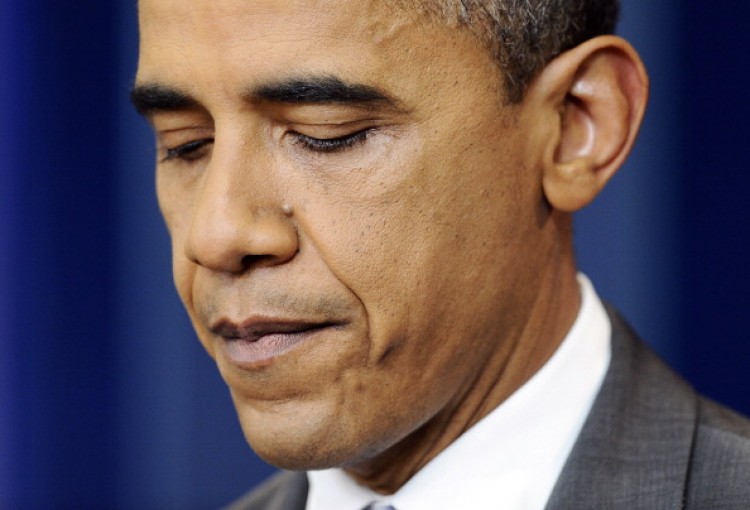The US debt crisis may be partially solved, but the damage done by the default impasse will be far-reaching, say analysts.
Dr Douglas Craig, a specialist in US political history at the Australian National University, says the fact that a debt ceiling plan had been agreed upon by both US party leaders was “hardly surprising”; the process, however, had set alarm bells ringing.
“What has horrified people is how long it took and how public it was,” he told The Epoch Times, adding that although the deal is still to be fully digested by all parties and political commentators, he was not expecting to see a sound resolution of the debacle.
“It won’t be a very good fix because it has been done under such pressure and against such entrenched views.”
Dr Craig said the US was the world’s largest economy, but the impasse had dealt a significant blow to the country’s financial standing.
The United States has been shown very publicly to be in a difficult position about governing itself. I think that is a very bad look around the world.”
Speaking in a televised address from the White House on Sunday night US time, President Obama announced that both he and Republican John Boehner had signed off on a plan that would raise the limit on US borrowing by up to $US2.4 trillion ($A2.19 trillion), enough to keep the Government afloat through the 2012 elections, while cutting $US1 trillion ($A911.9 billion) from US spending, AFP reported.
The plan, which will relieve the US from the threat of default, also involves the establishment of a new bipartisan Congressional committee that is to deliver recommendations for a further $US1.5 trillion ($A1.37 trillion) cut in government expenditure by November.
President Obama said it was not the deal he had preferred, but it would resolve the immediate impasse.
“Most importantly, it will allow us to avoid default and end the crisis that Washington imposed on the rest of America. And it will allow us to lift the cloud of debt and uncertainty.”
Republican leader John Boehner was able to prevent tax cuts to the wealthy, but could not secure further spending cuts. In addition, having failed to get agreement twice from Republican members of Congress on his plans for a debt ceiling agreement, Mr Boehner is contending with the image that the Republican party is inflexible and a hostage to the ultra conservative Tea Party.
Dr Craig says the Tea Party was a contributor to the standoff, creating “a real sense of impatience and alienation” from the political process.
Both parties had been impacted in different ways, he said: “The Republican Party feels very pushed by the right wing and the Democrats are increasingly nervous that they are being portrayed as reckless spenders or reckless taxers, so they have been more careful.
“The result has been that neither side had the political courage to take on these really tough decisions early.”
Credit Rating Threat
While the deal will enable the US Government to pay its bills, including the 80 million cheques to US citizens dependent on government support, it remains to be seen whether the US can maintain its much respected Triple A credit rating.
According to Bloomberg, ratings agency Standard & Poor had warned that it needed to see cuts of $US3 trillion ($A2.7 trillion) if America was to maintain its top rating and the mood in financial circles was not looking good for the US in that regard.
Julian Jessop, chief international economist at Capital Economics, told Bloomberg that the figures were not adding up for the debt rating agencies.
“I’m pretty sure America will lose its Triple A rating,” he said.
Dr Craig said America’s uncertain financial standing may threaten the US dollar’s status as a safe currency refuge and may see countries looking elsewhere to invest their money.
“That has been worth a lot of money, millions of dollars to the US, over the years and it may cause a long-term rethink,” he said.
He said a possible downgrading of bond issues and the country’s credit could cost additional funds, adding to the country’s financial woes.
Economics professor Bradford Delong, from the University of California-Berkeley, says the damage done through the six months of wrangling over the debt ceiling, which analysts note has been lifted 78 times since 1960 and 49 times under Republican presidents, was a distraction the US could ill afford.
Writing in the Australian Financial Review, Professor Delong decries the neglect of all the “useful policies that might have been debated and enacted, but were not”, citing climate change initiatives, policies to boost employment, education and healthcare financing, plus improvements to America’s “decaying infrastructure”. These policies, he believes, would help improve the economy in the long run and bring down unemployment that, according to the US Bureau of Statistics, is at a high of 9.2 per cent.
Looming large also was the loss of standing as “conductor of the international economic orchestra”, Professor Delong wrote, warning that if the US can no longer be relied upon as the arbiter of global governance, then the world needs to develop “other institutions for global management” – and fast.






